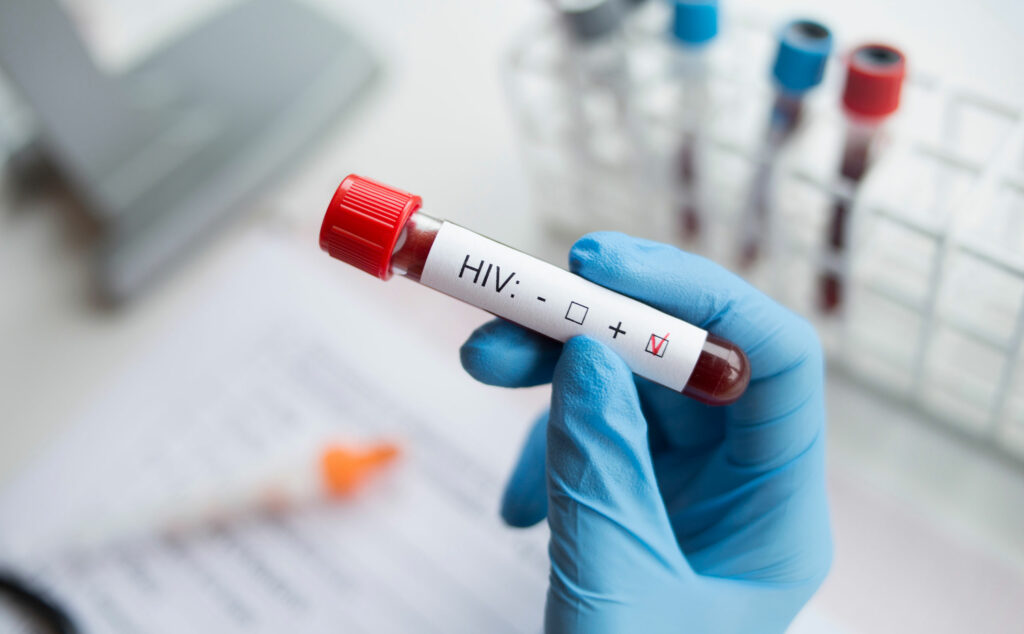Key points:
- Fourth-generation tests allow HIV results to be obtained no later than one month from first contact.
- About 80% of people will develop a primary infection that can be confused with the flu.
- The undetectable status will be maintained as long as treatment is taken correctly.
HIV is an infection caused by the human immunodeficiency virus and is mainly contracted through unprotected sex or sharing needles.
Dr. Brenda Crabtree Ramírez, infectious disease specialist and researcher at ABC Medical Center, points out that currently, fourth-generation tests allow obtaining a positive result from the second week or a month maximum of first contact with the virus. Having to wait six months to verify infection is now obsolete.
Many people do not perceive themselves at risk of acquiring HIV, this being the first problem in the spread of the virus. It is of great importance that every person who has an active sex life, regardless of whether they only have one partner, is tested for HIV annually, this will allow timely detection of whether they are living with the virus and thus prevent it from becoming an advanced disease.
Regardless of whether you have an annual check-up or for a particular situation and discover that you have tested positive for HIV, the first step is to make an appointment with an infectious disease specialist, but a doctor who specializes in treating HIV, says Dr. Crabtree, because not all infectious disease specialists treat this disease.
Fortunately, in Mexico, there is a free antiretroviral treatment for all people living with HIV, and your infectious disease specialist will be able to indicate or advise you on how to access them.
“Approximately 1.3 million people living with HIV were receiving antiretroviral treatment (ART) in Latin America and 210,000 in the Caribbean at the end of 2019, representing 60% ART coverage among all people living with HIV in Latin America and 63% in the Caribbean.”1
Around 80% of the people who acquire the virus will develop the primary infection, also known as an acute retroviral syndrome or acute infection, which could be described as the confrontation, for the first time, of the virus against the immune system.
During the primary infection, the patient may perceive symptoms similar to the common cold, including sore throat or headache, fever, cough, general discomfort, and, due to this, it can also be confused with influenza or COVID-19. As it is a mild self-limiting condition, it is common for people who are unaware of their situation to not see their doctor.
After this, people with HIV will reach a longer period known as “latency” where it could be said that there are no symptoms because the virus is reproducing. At this stage, the viral load is already present in the blood and can be transmitted to other people.
The human immunodeficiency virus focuses on infecting CD4 lymphocytes, cells of the immune system that are responsible for defending us from viruses, bacteria, and other germs, and as a result of this, they will decrease little by little.
If this situation is not addressed promptly, the drop in these lymphocytes puts the person at risk of acquiring opportunistic infections, resulting in acquired immunodeficiency syndrome (AIDS), also known as advanced or symptomatic disease. Dr. Crabtree says that for anyone who has tested positive for HIV, the ideal is not to get to such advanced stages.
Once detected as positive, the person must aim to reach the undetectable state. Various studies have shown that those who have the virus under control, through the correct use of antiretrovirals, manage to be people in whom the virus is not detected in the blood and, therefore, no longer transmit it, even having sexual intercourse without a barrier method.
Currently, the term “Undetectable = Untransmissible” has become an extremely important concept to help remove the stigma that existed around this disease. Through various scientific investigations, today we know that people who reach the undetectable state do not transmit the virus, managing to lead a completely safe life.
Something important to consider is that people who are now undetectable must take their medication daily, and if they do not adhere well to it, the undetectable status will be reversed. Hence the importance of the person taking their treatment properly.
There are many myths related to people living with HIV. The reality is that today these people can lead a life with the same quality as those who do not have HIV. Leading a healthy life, eating a good diet, exercising, and not using drugs, to name a few is what we should all follow, regardless of the status of the virus. However, if you have already developed an advanced disease, during the treatment period in which the retroviral begins to take effect, your doctor can make certain specific recommendations to follow until the immune system recovers.
It is of great relevance to demystify the misconceptions around HIV, this means that people living with this virus should not be treated differently, body care is the same for everyone and with the correct use of antiretrovirals, every positive person can lead a healthy and fulfilling life, says Dr. Crabtree.
Come to the ABC Medical Center’s Clinical Laboratory if you want to know your HIV status, or to the Preventive Medicine area if you want a doctor’s appointment. Contact us!
Fuente:
Dra. Brenda Crabtree Ramírez –Infectious disease specialist and researcher at ABC Medical Center
1https://www.paho.org/es/temas/vihsida


